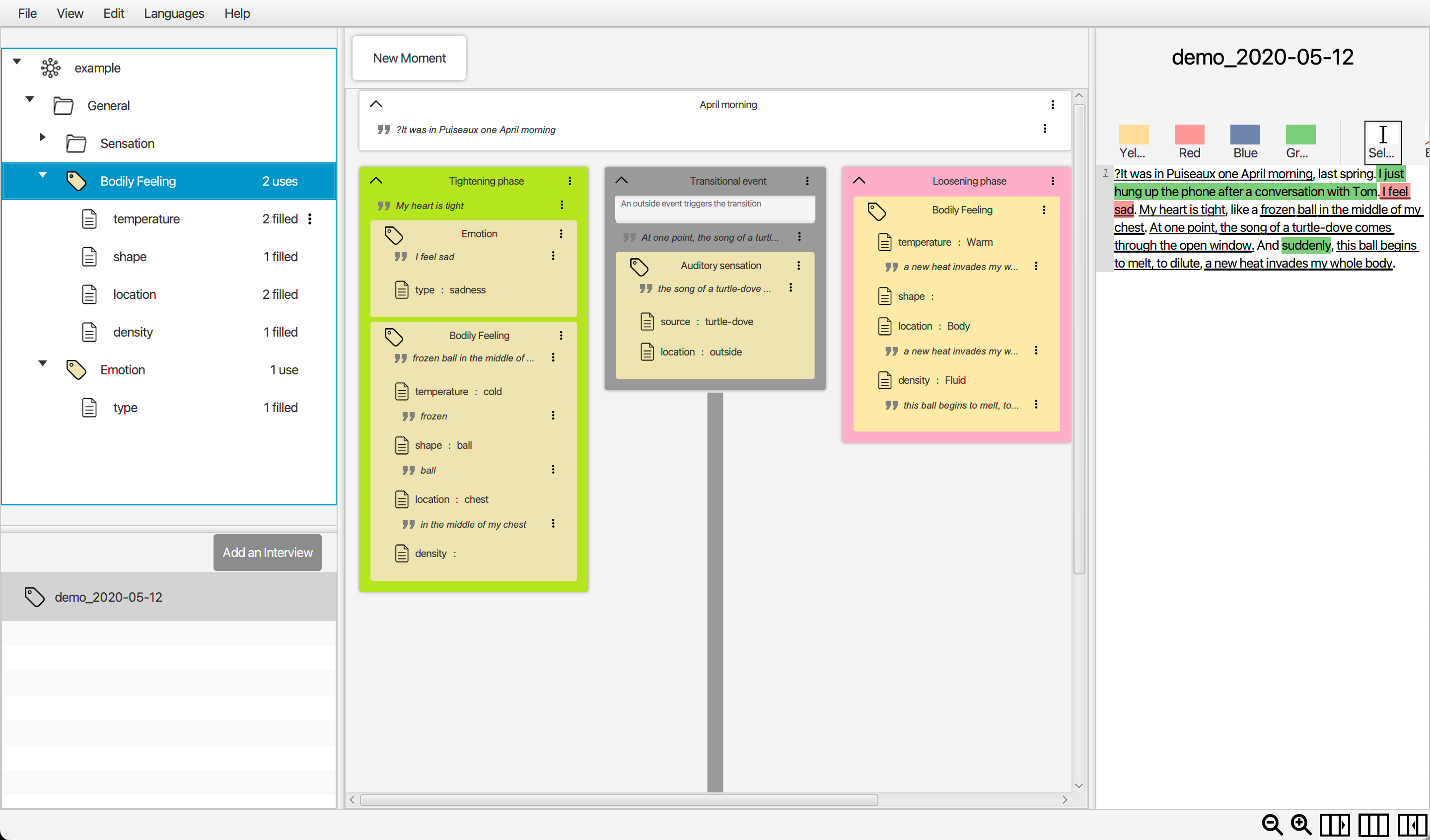Welcome to the µPMT webpage

What is µPMT?
µPMT stands for “micro Phenomenology Modelling Tool”. It is also written uPMT because greec letters can be hard to find on average keyboards.
The tool is aimed at researchers using microphenomenology interviews (also know as explicitation interviews) to study lived experience. It has been designed to help analyze the micro-dynamics of experience as described in interview transcriptions, by modelling and formalizing the sequential unfolding of “experience moments” described with categories and properties, and linked to the descriptemes - excerpts of the transcript - that justify them.
More info on microphenomenology and explicitation interviews can be found on
- http://microphenomenology.com (en/fr)
- https://www.grex2.com/ (fr)
Where can I find it?
The last release can be obtained from https://github.com/yprie/uPMT/releases
Documentation is here: https://github.com/yprie/uPMT/wiki
And bug reporting / feature asking can be done here https://github.com/yprie/uPMT/issues
Where does it come from?
This is an open source (GNU GPLv3) ongoing work conducted at University of Nantes, France; led by Pr. Yannick Prié (http://yannickprie.net), with the help of students of the CS Department of Polytech Nantes.
Current work is carried out by Yves Motteux and Esteban Jamin. Past developers were Xavier Tremillon, Yahuan Chen and Nathan Seva (19-20), Gwenaelle Gouriten, Salma Hichami and Othman Houmair (18-19), and Mehdi Haddad, Eva Boon and Yinxing Huang (17-18), under the supervision of Yannick Prié. The first version of the software was implemented by Corentin Jezequel in late 2017, under the supervision of Yannick Prié and Thomas Rabeyron.